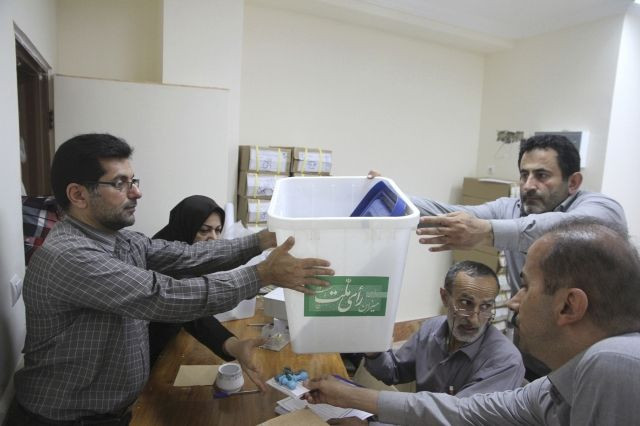Iran Presidential Election 2013: Voting Begins; Ayatollah Ali Khamenei Says He Doesn’t Care About US Accusations Of Election Being Unfair

Iranians began casting their ballots on Friday in the country’s presidential election that will name a successor to outgoing President Mahmoud Ahmadinejad.
Traditionally, elections in Iran have been criticized as neither free nor fair, and after the 2009 reelection of Ahmadinejad, doubts were raised about the credibility of his landslide victory amid allegations of vote-tampering and electoral fraud.
Iran’s Supreme Leader Ayatollah Ali Khamenei, on Friday, urged Iranians to vote, adding that they did not “give a damn” about U.S. accusations that the election was unfair, Reuters reported.
“What is important is that everyone takes part,” Khamenei said, in a live address on state television as he cast his ballot in the capital, Tehran.
“Our dear nation should come [to vote] with excitement and liveliness, and know that the destiny of the country is in their hands and the happiness of the country depends on them.”
“I recently heard that someone at the U.S. National Security Council said ‘we do not accept this election in Iran.’ We don't give a damn,” he said.
All six candidates vying for the presidency are seen as conservatives, although cleric Hassan Rowhani, is considered the only reformist in the lineup.
The voting began at 8 a.m. on Friday (11:30 p.m. EDT) at 66,000 polling stations supervised by nearly one million election officers, Al-Monitor reported. No outside observers are permitted in the election, which is overseen by the interior ministry.
More than 50 million people are eligible to vote in a population of about 76 million, according to Associated Press.
A simple majority of more than 50 percent of the votes cast is needed for victory. If none of the candidates achieve a majority on Friday, a two-candidate run-off will be held on June 21.
The new president is expected to take charge in late August.
© Copyright IBTimes 2024. All rights reserved.





















